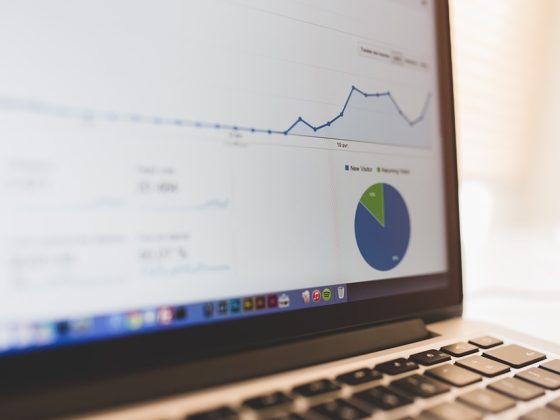end.
In today's increasingly digital world, businesses are collecting more data than ever before. However, the true value of this data lies in the insights that can be gleaned from it. This is where analytics comes in. By using analytics tools and techniques, businesses are able to process and analyze their data to uncover meaningful patterns, trends, and insights that can drive growth and success.
From tracking customer behavior to optimizing operations, leveraging analytics has become a key differentiator for businesses looking to stay ahead in a competitive market. In this article, we'll explore how businesses are using analytics to unlock new opportunities for growth and profitability.
Understanding Analytics
At its core, analytics is the process of examining data in order to uncover meaningful insights, patterns, and trends. This can involve a variety of techniques, including statistical analysis, data mining, machine learning, and predictive modeling. By applying these techniques to their data, businesses can gain a better understanding of their customers, operations, and market trends.
One of the key benefits of analytics is its ability to provide businesses with actionable insights. By analyzing their data, businesses can identify opportunities for improvement, make data-driven decisions, and optimize their strategies for success. Whether it's improving customer experiences, increasing operational efficiency, or driving revenue growth, analytics can play a critical role in helping businesses achieve their goals.
Leveraging Analytics for Growth
There are countless ways that businesses can leverage analytics to drive growth and success. Here are just a few examples of how companies are using analytics to their advantage:
1. Customer Insights: By analyzing customer data, businesses can gain valuable insights into their preferences, behaviors, and needs. This information can be used to personalize marketing campaigns, improve customer experiences, and drive loyalty and retention.
2. Operational Optimization: Analytics can also be used to optimize operations and improve efficiency. By analyzing data on processes, workflows, and resources, businesses can identify bottlenecks, streamline operations, and reduce costs.
3. Market Trends: By analyzing market data and trends, businesses can stay ahead of the competition and capitalize on new opportunities. Whether it's identifying emerging trends or predicting future demand, analytics can provide businesses with a competitive edge.
4. Risk Management: Analytics can also be used to assess and mitigate risks. By analyzing data on potential threats, vulnerabilities, and opportunities, businesses can make informed decisions to protect their assets and minimize risks.
Overall, the possibilities for leveraging analytics for growth are virtually endless. From improving decision-making to driving innovation, analytics can play a crucial role in helping businesses achieve their goals and stay ahead in a rapidly evolving market.
FAQs
Q: What types of data can be analyzed using analytics?
A: Virtually any type of data can be analyzed using analytics, including customer data, operational data, market data, and more. The key is to identify the most relevant and valuable data for your business objectives.
Q: What are some common analytics tools and techniques?
A: Common analytics tools and techniques include statistical analysis, data mining, machine learning, predictive modeling, and more. Each of these techniques can be used to extract valuable insights from data and drive informed decision-making.
Q: How can businesses get started with analytics?
A: To get started with analytics, businesses should first identify their objectives and key areas for analysis. From there, they can collect and analyze relevant data, choose the right analytics tools and techniques, and use the insights gained to inform their strategies and decision-making.
In conclusion, analytics has become a crucial tool for businesses looking to drive growth and success. By leveraging analytics to extract valuable insights from their data, businesses can make more informed decisions, optimize their strategies, and stay ahead of the competition. Whether it's improving customer experiences, optimizing operations, or capitalizing on market trends, analytics can help businesses unlock new opportunities for growth and profitability.











